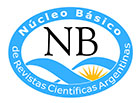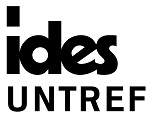Case Studies, ‘Appreciative’ Theorizing and the Dynamic of Industrial Policy
Keywords:
Appreciative Theorization, Social Change, Technological Capabilities Accumulated, Salmon IndustryAbstract
This article is an exercise in 'appreciative theorization' in the sense of building an analytically wellfounded narrative of social change. This approach is considered in several studies examining the 'evolutionary history' of firms, corporations, or entire branches of industry. The macroeconomic situation is taken into account, but it does not play a leading role; it highlights many microeconomic and institutional aspects related to the technological capabilities accumulated by agents, as well as changes experienced by institutions over time. Reference will be made to the evolution of Chilean salmon industry to exemplify the dynamics experienced by firms, suppliers, regulatory agencies, and local communities; such changes allow to recreate behaviors and establish new styles of relationship. It will be stressed that at each stage of the development of an industry different public goods and institutions are required and that an adequate design of sectoral productive development policy must address these needs.
Keywords: appreciative theorization, social change, technological capabilities accumulated, salmon industry.
Downloads
References
Abramowitz, M. (1989). Thinking about growth and other essays on economic growth and welfare. Cambridge: Cambridge University Press.
Arrow, K. (1962). The economic implications of learning by doing. Review of Economic Studies, 29(3), 155-173.
Bisang, R. (2003). Apertura económica innovación y estructura productiva. La aplicación de la biotecnología en la producción agrícola pampeana argentina. Desarrollo Económico, 43(171), 413-442.
Bresnitz, D. (2007). Innovation and the State. New Haven y Londres: Yale University Press.
Chandler, A. (1962). Organizational Capabilities and the Economic History of the Industrial Enterprise. Journal of Economic Perspectives, 6(3).
Griffith-Jones, S (2019). National Investment banks. Mimeo Hosono, A.; Iizuka, M. y Katz, J. (2016). Chile’s salmon industry. Policy challenges in managing public goods.Tokio: Springler.
Langlois, R. (1986). Economics as a process. Essays in the new institutional economics. Cambridge: Cambridge University Press.
McCraw, T. (2007). Prophet of Innovation. J.Schumpeter and creative Destruction. Cambridge (Ma) yLondres: The Belknapt Press.
Meller, P. (2020). Cobre chileno, productividad, innovación y licencia social. Santiago: Cieplan/Universidad de Talca.
Nelson, R. (2009). An Evolutionary Theory of Economic Change. Cambridge (Mass): Belknam Press.
Nelson, R. (2018). Numbers and math are good, but... Mimeo.
Paus, E. (2020). Industrial hubs and structural transformation in Latin America. Lessons from Costa Rica. En A. Oqubay y J. Lin (eds.), The Oxford handbook of industrial hubs and economic development (pp. 815-835). Nueva York: Oxford University Press.
Ramlogan, R. y Metcalfe, S. (2006). Restless capitalism. A complexity perspective. En E. Garnsey y J. Mc Glade (eds.), Complexity and co–evolution (pp. 115-146). Cheltenham: Edward Elgard Publishing.
Schumpeter, J. (1942). Capitalism, socialism and Democracy. Nueva York: Harper and Brothers.
Scott-Kemis, D. (2013). How about those METs? Leveraging Australia’s mining equipment, technology and service sector. Sydney: Mineral Council of Australia.
Walras, L. (1987) [1874]. Elements of pure economics. Madrid: Alianza Editorial.
Downloads
Published
How to Cite
Issue
Section
License
Copyright (c) 2021 Desarrollo Económico. Revista de Ciencias Sociales

This work is licensed under a Creative Commons Attribution-NonCommercial-ShareAlike 4.0 International License.
Manuscript acceptance by the Journal implies the simultaneous non-submission to any other journal or publishing house, and the non-exclusive transmission of the author´s patrimonial rights in favor of the editor, who allows the post-print version use, under the Licencia Creative Commnos Atribución-NoComercial-Compartir Obras Derivadas Igual 4.0 Internacional (CC-BY-NC.SA 4.0) (http://creativecommons.org/licences/by-nc-sa/4.0/deed.es). Articles can be shared, copied, distributed, modified, altered, transformed into a derivative work, executed and publicly communicated, provided a) the authors and the original publication (Journal, Publisher and URL) are mentioned, b) they are not used for commercial purposes, c) the same terms of the license are maintained.
It is hereby stated that the mentioned manuscript has not been published and that it is not being printed in any other national or foreign journal.
The authors hereby accept the necessary modifications, suggested by the reviewers, in order to adapt the manuscript to the style and publication rules of this Journal.









